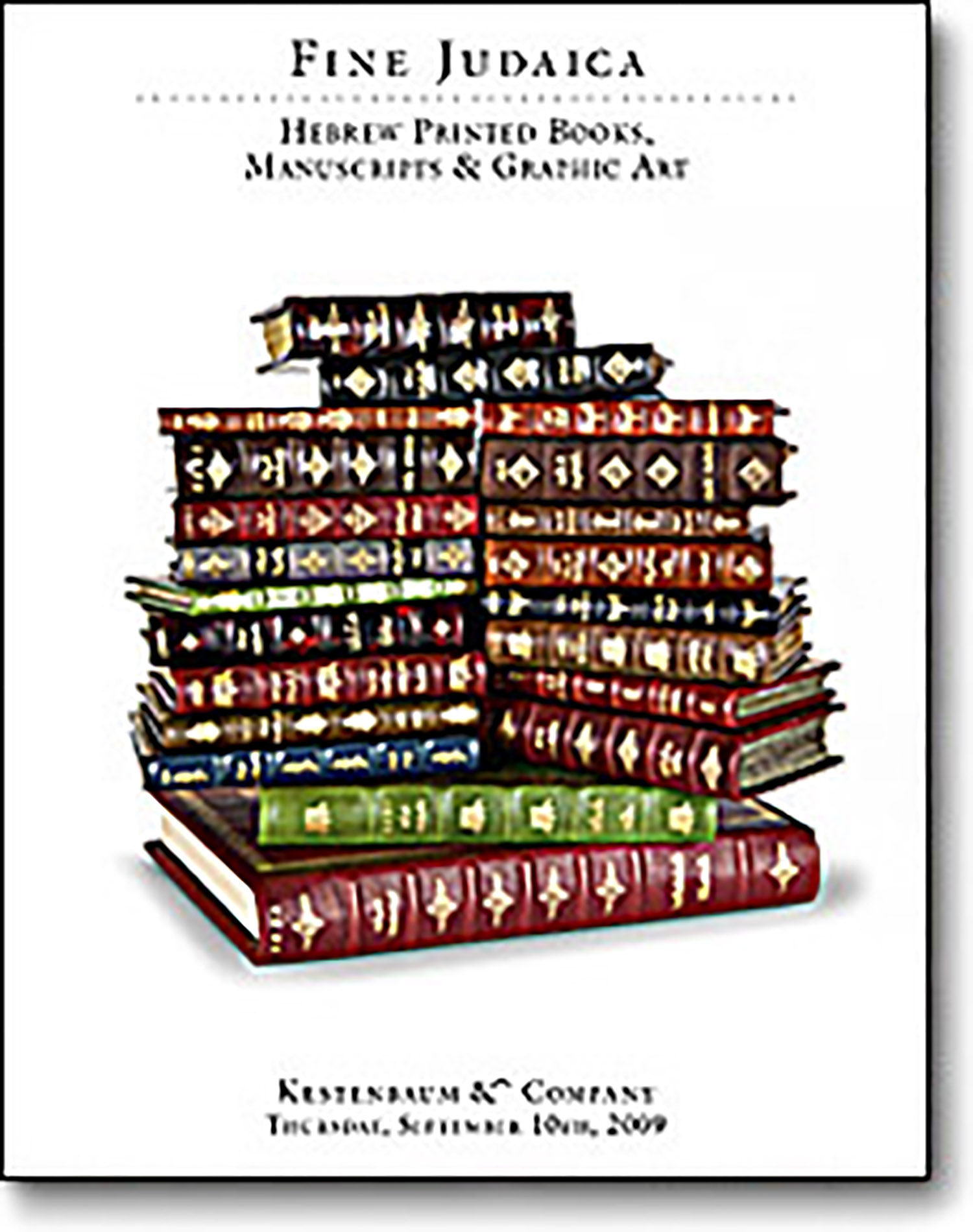Or Ado-nai [“Light of the Lord”: philosophy]

AUCTION 46 |
Thursday, September 10th,
2009 at 1:00
Fine Judaica: Hebrew Printed Books, Manuscripts, & Graphic Art
Lot 90
CRESCAS, HASDAI
Or Ado-nai [“Light of the Lord”: philosophy]
Ferrara: Abraham Usque 1555
Est: $2,000 - $3,000
PRICE REALIZED $2,000
An outstandingly original Jewish philosopher, Hasdai Crescas (c. 1340-d.1410/11) was the disciple of the preeminent Iberian rabbinic personality of the day, R. Nissim ben Reuben of Gerona (Ra”N). The Or Ado-nai is an important work of Jewish philosophy and subjected Maimonides’ Aristotelian conceptions to a rigorous critique. It has long been contended that Crescas produced a form of religious determinism, however, a careful reading will show that his thoughts on this perennial philosophical problem are much more nuanced and complex.
In the realm of astrophysics, Crescas’ conception of infinite space is strikingly modern. His physics anticipated that of Newton; while parallels have been drawn as well between Crescas on the one hand and Galileo Galilei and Giordano Bruno on the other. See J. Guttman, Philosophies of Judaism (1973) p. 259; p. 511, n. 250); see also H.A. Wolfson Crescas’ Critique of Aristotle (1929) pp. 269-73.
The marginalia in this copy contain corrections apparently based upon an early manuscript as this is the first printed edition. The previous owner, clearly a scholarly bibliophile, inserted four additional leaves from another copy of the work in order to complete the text of this copy due to an interesting printer's error: Versos of some leaves were not printed in their proper place and the rectos were repeated.
